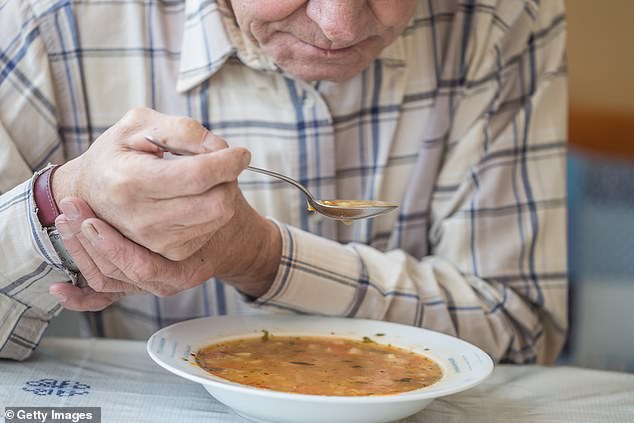Parkinson’s disease could be treated with tetanus shots – after new research found those given the shot were half as likely to be diagnosed
Hopes that a treatment for Parkinson’s disease is on the horizon have been raised after research showed that tetanus shots protect against the incurable disease.
People who have recently been vaccinated against tetanus after a wound infection are half as likely to develop the condition.
Scientists suspect that tetanus bacteria are responsible for the attack on the nervous system of Parkinson’s patients.
About 153,000 people in Britain have Parkinson’s, a neurodegenerative disorder that causes pain, tremors in the limbs and movement problems. Two more people are diagnosed every hour and the disease costs the NHS more than £725 million a year.
Former Newsnight presenter and University Challenge quizmaster Jeremy Paxman, who has Parkinson’s, has said it ‘makes you wish you weren’t born’.
Hopes that a treatment for Parkinson’s disease is on the horizon have been raised after research showed tetanus shots protect against the incurable disease (stock photo)

Former Newsnight presenter and University Challenge quizmaster Jeremy Paxman, who has Parkinson’s, has said it ‘makes you wish you weren’t born’
The new findings suggest that widely available tetanus vaccines may prevent or treat Parkinson’s disease, a condition that usually affects older people and is caused by the death of a subset of brain cells that control movement.
How tetanus bacteria attack these cells is unknown, but the researchers speculate that they may gain access to the brain through nerve cells in the nose.
The researchers analyzed data from a large healthcare provider in Israel to see whether vaccines given in adulthood increased or decreased the risk of Parkinson’s.
They looked at 1,500 people diagnosed between the ages of 45 and 75, and compared them with a control group – five times the size – of non-patients selected because they had similar characteristics to those with the disease.
They found that 1.6 percent of people with Parkinson’s had received the tetanus vaccine before their diagnosis, compared to 3.2 percent of those without.
The protective effect was also greater in people who had recently received the vaccine, with no one developing Parkinson’s disease within two years of immunization.

People who have recently been vaccinated against tetanus after being diagnosed with a wound infection are half as likely to develop the condition (stock photo)
Dr. Ariel Israel, from Tel Aviv University, told New Scientist magazine: ‘The closer to the vaccine date, the less likely individuals are to be diagnosed with Parkinson’s disease.’
Adults receive a tetanus vaccine if they have a wound contaminated with soil, feces, or saliva, because the bacteria that causes tetanus, Clostridium tetani, can be found in it.
Claire Bale, deputy director of research at the charity Parkinson’s UK, said the findings “raise the interesting possibility that tetanus vaccinations could have the potential to protect against the development of Parkinson’s and may even slow the progression of the condition.” .
‘As this is something current treatments cannot do, this would be hugely important if it were achieved.’
